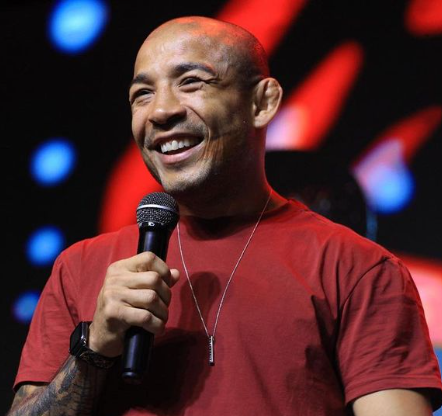Conor McGregor’s involvement in the aftermath of UFC 307 added an extra layer of drama to an already controversial fight
His outspoken nature and willingness to challenge the referees, judges, and fighters alike have once again kept him in the spotlight, even as he prepares for his own potential return to the octagon.
While the outcome of the Aldo-Bautista fight will likely remain a point of contention, McGregor’s passionate defense of Aldo serves as a reminder of the complexities of MMA and the ongoing debate about how the sport should be officiated.
José Aldo’s journey from the streets of Manaus to becoming a UFC champion is a story of grit, determination, and talent. As one of the most iconic fighters in MMA history, Aldo has set the standard for what it means to be a champion.
With his fighting career still ongoing and new ventures in boxing, the next chapter of José Aldo’s life promises to be as exciting and inspiring as the last.
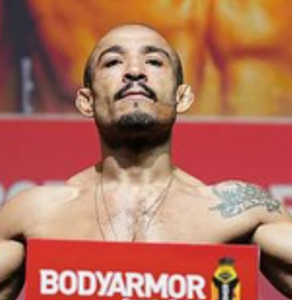
Also Read: José Aldo Brazilian MMA: Age, Bio/Wiki, Career, Family And More Explained
Table of Contents
Jose Aldo’s Controversial Loss at UFC 307
Jose Aldo’s split decision loss to Mario Bautista at UFC 307 sparked heated debates among fans, fighters, and pundits.
While Aldo displayed moments of brilliance during the fight, Bautista’s tactical clinching and disruption of Aldo’s rhythm proved pivotal in securing the win.
However, not everyone agreed with the outcome, and Conor McGregor, a former opponent of Aldo, was among the loudest voices expressing outrage over the result and the officiating during the bout.
The Fight: Aldo’s Comeback Efforts and Bautista’s Strategy
- Jose Aldo, the former UFC featherweight champion and one of the most iconic fighters in MMA history, entered the octagon at UFC 307 aiming to add another win to his already legendary career.
- The fight against Mario Bautista was competitive, with Aldo starting slowly but gaining momentum in the second and third rounds. His striking and movement seemed to be coming together, particularly as the bout progressed.
- However, Bautista’s game plan of clinching with Aldo and neutralizing his offense became the defining factor in the fight.
- Bautista’s approach was to control Aldo by holding him against the fence, especially when the Brazilian legend began to find his rhythm.
- While this tactic limited the damage Bautista absorbed, it also led to lengthy periods of inactivity during the fight.
- Aldo struggled to break free from the clinch, and despite his attempts to land significant strikes, the American fighter effectively stifled his offense, which likely swayed the judges in his favor.
Press conference 😎 pic.twitter.com/bGFdVE6LJN
— Jose Aldo Junior (@josealdojunior) October 4, 2024
McGregor’s Outburst: “Dirt Decision”
- Conor McGregor, never one to shy away from sharing his opinions, took to social media to express his displeasure with the fight’s outcome.
- McGregor, who famously knocked out Aldo in just 13 seconds at UFC 194, has a unique history with the Brazilian. Yet, he didn’t hold back in his defense of Aldo after the controversial decision.
- In a series of tweets, McGregor blasted both the officiating and the judges’ decision. He called the split decision in favor of Bautista a “dirt decision,” suggesting that the fight was poorly judged.
- McGregor specifically took issue with Bautista’s clinching strategy, arguing that it led to an uneventful and slow-paced fight that did not allow Aldo to showcase his true skills.
- McGregor’s frustration centered around the excessive clinching and lack of referee intervention. In another tweet, he demanded that referees step in when fighters engage in prolonged clinches that do not lead to significant action.
- He argued that the sport is meant to be entertaining for the fans, and Bautista’s strategy deprived the audience of the dynamic exchanges that Aldo is known for.
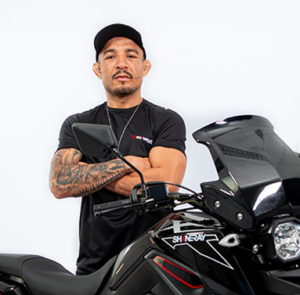
Jose Aldo: The Clinch Controversy
Should Referees Have Stepped In?
The use of clinching as a tactic in MMA is a subject of ongoing debate.
While clinching is a legitimate strategy that can be used to control an opponent, prevent damage, and wear them down, it can also lead to long periods of inactivity, which detracts from the excitement of the fight.
In the case of UFC 307, Bautista’s clinching seemed to serve more as a defensive mechanism than an offensive one, with little to no damage inflicted during these moments.
McGregor’s criticism of the referees echoed the sentiment of many fans who believe that fighters should not be allowed to use clinching as a means to stall the fight. McGregor suggested that referees should enforce a time limit on clinches, separating fighters if no significant action occurs after a certain period.
This would, in theory, promote a more exciting and dynamic fight, keeping the action moving and ensuring that the bout remains competitive.
Bautista Responds to McGregor’s Criticism
McGregor’s social media tirade did not go unnoticed by Mario Bautista. During the post-fight press conference, Bautista responded to McGregor’s comments in a fiery manner.
The bantamweight contender showed no interest in McGregor’s criticism, bluntly stating, “Conor can kiss my a**.”
He further added that McGregor should focus on his own career and take the long-anticipated fight against Michael Chandler instead of commenting on other fighters’ performances.
Bautista’s response highlighted the ongoing tension between McGregor and other fighters in the UFC. As one of the sport’s most outspoken and polarizing figures, McGregor’s opinions often draw reactions, both positive and negative. In this case, Bautista appeared unfazed by McGregor’s remarks, instead choosing to focus on his own journey in the UFC.
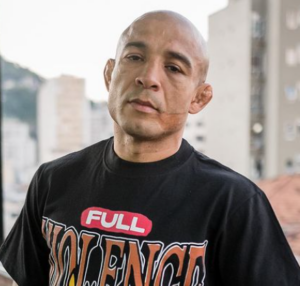
Jose Aldo: Legacy
For many fans, it was surprising to see Conor McGregor come to the defense of Jose Aldo, considering their bitter rivalry leading up to their historic fight in 2015.
McGregor’s 13-second knockout victory over Aldo remains one of the most iconic moments in UFC history, and the lead-up to the fight was filled with trash talk and animosity.
However, over the years, McGregor has expressed a level of respect for Aldo, recognizing his contributions to the sport and his status as a legend in the featherweight division.
McGregor’s defense of Aldo in the aftermath of UFC 307 may have stemmed from a shared understanding of the fight game. As a fighter who thrives on striking and exciting exchanges, McGregor likely sympathized with Aldo’s frustration at being held against the fence and prevented from engaging in the type of fight that he excels in.
For McGregor, the outcome of the fight was less about Bautista’s win and more about the method by which it was achieved—one that he deemed unsatisfactory for the fans and disrespectful to a fighter of Aldo’s caliber.
The Role of Judges in Close Fights
The split decision loss for Aldo once again brought the role of judges in MMA under scrutiny. In close fights, particularly those that involve long periods of inactivity or tactical grappling, judges often have to make difficult decisions about what to value more—control or effective striking.
In this case, Bautista’s control of Aldo in the clinch likely played a significant role in two of the judges scoring the fight in his favor.
However, McGregor’s criticism highlights the ongoing debate about how judges score fights that involve stalling tactics or prolonged clinches. Should control be rewarded more heavily than damage? And should referees step in more often to prevent fighters from stalling the action? These are questions that have yet to be fully resolved in the sport.
What’s Next for Aldo and Bautista?
For Jose Aldo, the loss at UFC 307 may be a setback, but it is unlikely to define the twilight of his career.
As a fighter who has achieved so much in the sport, Aldo remains a beloved figure in MMA, and he has nothing left to prove.
However, if Aldo chooses to continue fighting, he will likely need to make adjustments to deal with opponents who use clinching and control-based strategies to neutralize his offense.
Mario Bautista, on the other hand, continues his ascent in the bantamweight division. Despite the criticism from McGregor and some fans, Bautista’s win over Aldo is a significant feather in his cap, and it positions him for bigger fights in the future.
Whether he can continue to climb the ranks using similar tactics remains to be seen, but for now, Bautista is focused on his own journey and silencing his critics along the way.
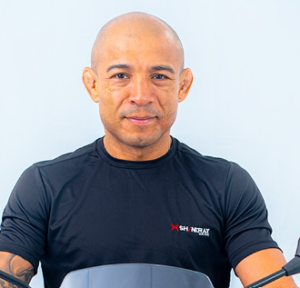
Also Read: Mario Bautista (MMA): Who Is He? Bio, Wiki, Age, Career, Net Worth 2024 and More
José Aldo: Bio
A Legendary Journey from Manaus to UFC Greatness
José Aldo da Silva Oliveira Júnior, commonly known as José Aldo, is one of the most celebrated names in the history of mixed martial arts (MMA).
With an illustrious career spanning decades, Aldo has left an indelible mark in the world of combat sports, earning a reputation as one of the greatest featherweights of all time.
His story is one of sheer determination, sacrifice, and resilience, marked by a remarkable rise from humble beginnings in Manaus, Brazil, to becoming a UFC legend.
Early Life and Background
- Born on September 9, 1986, in Manaus, Brazil, José Aldo grew up in a working-class neighborhood where his childhood was not without challenges.
- A significant event in his early life left him with a permanent scar on the left side of his face after he was accidentally dropped onto a barbecue grill as an infant.
- This incident would be a defining part of Aldo’s physical appearance, but it never deterred his focus or ambitions.
- Aldo’s passion for football (soccer) was evident during his teenage years. Like many Brazilian youngsters, he aspired to become a professional football player, and his father wholeheartedly supported these dreams.
- However, growing up in a tough environment, Aldo often found himself involved in street fights. Frustrated by the constant altercations, he decided to learn capoeira to defend himself better.
- Capoeira, a Brazilian martial art that combines dance, acrobatics, and music, was Aldo’s first exposure to martial arts.
- It wasn’t long before Aldo’s potential was noticed by a Brazilian jiu-jitsu (BJJ) trainer, who invited him to attend a BJJ session.
- Aldo instantly fell in love with the discipline and decided to pursue BJJ instead of capoeira. This pivotal decision set him on a path that would eventually lead to a remarkable career in MMA.
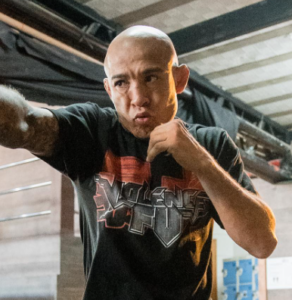
José Aldo: Career
The Move to Rio de Janeiro and Early Struggles
At the age of 17, with little more than the clothes on his back and a burning desire to succeed, Aldo left Manaus and relocated to Rio de Janeiro to train in mixed martial arts.
Rio de Janeiro was a hotbed for Brazilian jiu-jitsu and MMA talent, and Aldo was determined to make a name for himself in the sport. Despite his initial struggles and living in poverty, Aldo persevered and quickly earned the respect of his peers and coaches.
In Rio, Aldo joined the renowned Nova União gym, where he trained under the guidance of top coaches and alongside elite fighters.
It was here that Aldo met and became training partners with Renan Barão, another future UFC champion. The Nova União gym played a crucial role in shaping Aldo’s skills and honing his abilities as a mixed martial artist.
Rise to Prominence in the WEC
Aldo’s professional MMA career began in 2004, and by 2008, he had earned a contract with World Extreme Cagefighting (WEC), a premier organization for lighter weight classes that would later merge with the UFC.
Aldo quickly made a name for himself in the WEC with his explosive striking, precise Muay Thai, and solid Brazilian jiu-jitsu skills.
Aldo’s rise in the WEC was meteoric. His incredible knockout power and relentless pace inside the octagon earned him a string of victories, leading to a title shot against Mike Brown for the WEC Featherweight Championship.
On November 18, 2009, at WEC 44, Aldo defeated Brown via TKO to become the WEC Featherweight Champion. This victory marked the beginning of Aldo’s reign of dominance in the featherweight division.
Becoming the First UFC Featherweight Champion
In 2010, the UFC merged with the WEC, and as the reigning WEC Featherweight Champion, José Aldo was crowned the first-ever UFC Featherweight Champion.
This title solidified Aldo’s status as one of the top fighters in the world, and he went on to defend his UFC featherweight belt seven times, further cementing his legacy in MMA history.
Aldo’s fighting style was a perfect combination of technical prowess and aggression. His devastating leg kicks became his signature move, often crippling his opponents over the course of a fight. His striking was complemented by his grappling skills, making him one of the most well-rounded fighters in the division.
View this post on Instagram
Undefeated Streak and Conor McGregor Rivalry
From November 2005 to December 2015, José Aldo enjoyed one of the most remarkable undefeated streaks in MMA history.
Over the course of a decade, Aldo won 18 consecutive fights, a testament to his skill, consistency, and ability to adapt to the ever-evolving sport. During this period, Aldo was widely regarded as the pound-for-pound best fighter in the world.
However, Aldo’s reign came to an abrupt end at UFC 194 in December 2015, when he faced Irish fighter Conor McGregor in one of the most anticipated matchups in UFC history.
The buildup to the fight was intense, with McGregor engaging in psychological warfare, using mind games and trash talk to get under Aldo’s skin. When the fight finally took place, McGregor knocked Aldo out in just 13 seconds, handing him his first loss in over a decade.
Despite the devastating loss, Aldo’s legacy as one of the greatest featherweights of all time remained intact. He continued to fight at the highest level and later made the decision to move down to the bantamweight division in search of new challenges.
Career at Bantamweight
In 2019, José Aldo made the decision to drop down to the bantamweight division, a move that surprised many fans and analysts. Despite concerns about his ability to make the weight cut, Aldo proved that he could still compete at an elite level.
He quickly worked his way up the bantamweight rankings and even challenged for the UFC Bantamweight Championship in July 2020, although he came up short against Petr Yan.
As of August 2024, José Aldo continues to be a force in the bantamweight division and is ranked #10 in the UFC bantamweight rankings. His transition to a new weight class later in his career is a testament to his adaptability and enduring passion for the sport.
Also Read: Austin Ekeler’s Gruesome Injury: What Happened to the Commanders Star?
